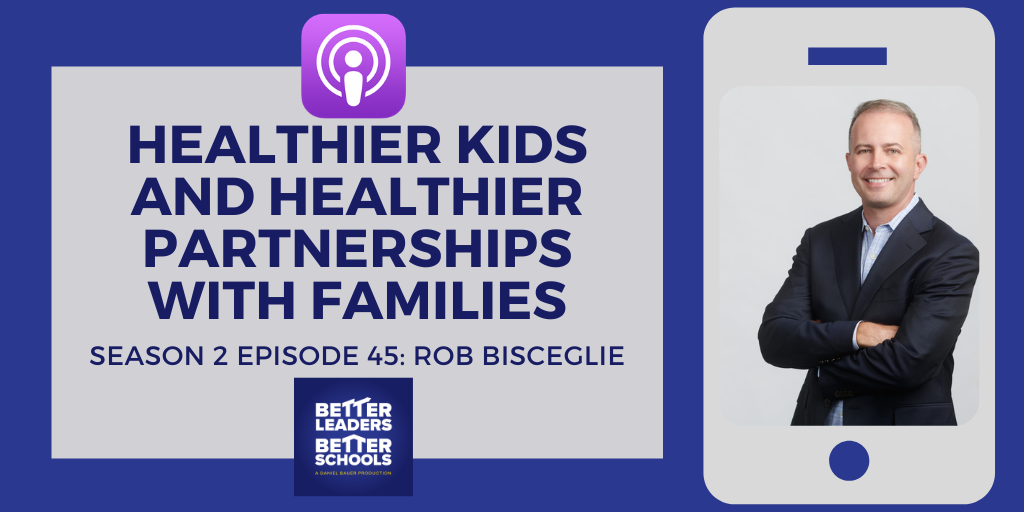As a nonprofit CEO who is, first and foremost, a husband and father of three, Rob cares deeply about promoting justice and equitable opportunities for all kids to be able fulfill their dreams. After earning his graduate degree focused on U.S. human rights foreign policy, Rob worked on U.S. Agency for International Development (USAID) programs and at other nonprofits that shaped his belief that health is a human right. Rob believes that we have under-invested in kids’ health and well-being and that healthy kids make a better world.
Under his leadership as CEO of Action for Healthy Kids (AFHK) since 2008, the organization has grown to become the largest family and school health network of more than 150,000 volunteers and champions serving the health and well-being of 20 million children in 55,000 schools nationwide.
Show Highlights
- Leaders you need to surround yourself with to excel
- Stop under-investing in kids’ health and wellbeing
- Cornerstones in building successful family, community, school partnerships
- A few concrete steps and tools schools can use to build healthier kids
- “Leadership is a team sport”
- Develop true partnerships between the district and the learning community
- Pride and communication builds necessary engagement

“Teachers can move around. Parents and kids can change all the time, but your policies are what stand the test of time. If you embed in your policies really good practices around the health of the kids then you can move your whole community, all the kids, and future generations. The biggest service over many years to come.”
– Rob Bisceglie
Rob Bisceglie’s Resources & Contact Info:
- Action for Healthy Kids: Home
- My Quest for Health Equity: Notes on Learning While Leading
- WSCC Model
- School Health Index
- ActionforHealthyKids Twitter
Looking for more?
SHOW SPONSORS:
HARVARD GRADUATE SCHOOL OF EDUCATION
Transform how you lead to become a resilient and empowered change agent with Harvard’s online Certificate in School Management and Leadership. Grow your professional network with a global cohort of fellow school leaders as you collaborate in case studies bridging the fields of education and business. Apply today at http://hgse.me/leader.
The SMART Learning Suite Online allows teachers to create, store, and deliver lessons from anywhere – no SMART Board required – and your students can access and engage with your content from any web browser on any device. And it connects with tools you already use like Google Classroom and Microsoft Teams.
The research-backed EdTeach Assessment Tool will help Ruckus Makers discover their strengths and best area of focus across 5 different modules, including leadership and remote learning. You’ll get a personalized report that shows where you stack up against other leaders, and maps some areas of focus that will have the greatest impact for you.
Organized Binder is the missing piece in many classrooms. Many teachers are great with the main content of the lesson. Organized Binder helps with powerful introductions, savvy transitions, and memorable lesson closings. Your students will grow their executive functioning skills (and as a bonus), your teachers will become more organized too. Help your students and staff level up with Organized Binder.
Copyright © 2021 Twelve Practices LLC


